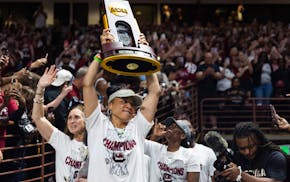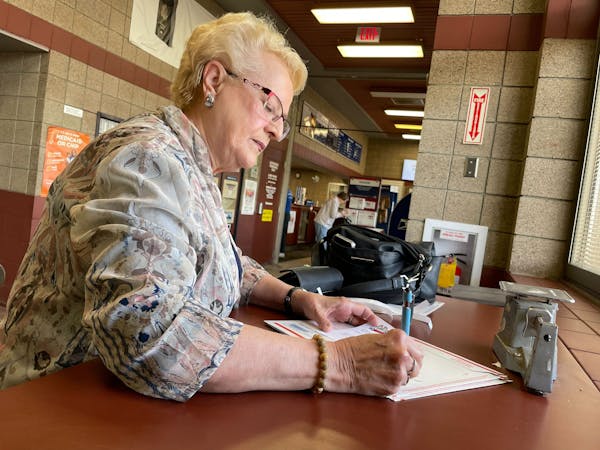St. Paul is leading the formation of a group of cities from across the United States to share legal strategies in dealing with mortgage lenders in an effort to reverse the effects of the foreclosure crisis.
St. Paul and Baltimore are co-chairing the group, which so far has signed on 13 cities with major populations, including Atlanta, Chicago and Memphis.
Cities across the nation have watched homes go vacant and neighborhoods deteriorate because of the explosion of foreclosures. Millions of dollars have been spent to deal with the problem. Cities have made varied efforts to stabilize their neighborhoods, from working with lenders on various programs to suing them.
St. Paul has seen the number of foreclosures increase from 503 in 2005 to 1,819 in 2007 to 2,289 in 2009. The number of vacant buildings rose above a record 2,000 last year, as well.
While the name of the new alliance is the National Multi-City Litigation Working Group on Foreclosures, lawsuits aren't necessarily a foregone conclusion, said St. Paul City Attorney John Choi.
The goal is to share information, coordinate legal strategies and pool resources and legal clout to get lenders to be "part of the solution," he said.
"The city's perspective is we want to work with the industry first," Choi said. "However, if we don't get something that's meaningful to the city's residents, then we need to consider all the tools in the toolbox -- and litigation certainly is one of those tools."
A spokesman with the Mortgage Bankers Association in Washington declined to comment Tuesday.
Pooling resources among cities makes sense, said Suzanne Sangree, chief solicitor in Baltimore. Her city filed a suit against Wells Fargo last January, alleging predatory and discriminatory lending practices.
"Many of the lenders who have engaged in irresponsible lending practices are national banks, so many cities are dealing with many of the same entities," she said.
Last April, St. Paul sent letters to six lenders with the most registered vacant properties in the city, asking to work together on plans to eliminate the empty properties.
Choi said the city has had mostly productive discussions with the recipients of the letters but has not ruled out suing.
Minneapolis is monitoring the group's actions but hasn't signed on, said City Attorney Susan Segal.
"The most pragmatic approach seems to be gathering at the table," Segal said. "There may be a place and time for litigation, but we're in such a crisis that quick action is helpful."
The St. Paul City Council is expected to pass a resolution today in support of the city's participation in the group. Choi is expected to make a progress report to the council in 90 days, according to the resolution.
More details, such as which cities are joining and what actions might take place, will come out in the coming weeks and months.
Chris Havens • 651-298-1542

Souhan: South Carolina's Staley brings humor, wisdom to St. Kate's
BCA says deputy stumbled and fell as man with knife charged in Chanhassen, prompting 2 deputies to shoot him

USPS audit found Bemidji post office delayed delivery of 79,000 pieces of mail

